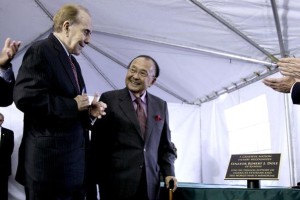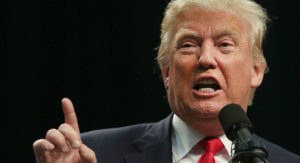
Collegiality isn’t dead in Washington, D.C., after all.
I’m not reporting anything new here; I’m merely passing on an interesting Texas Tribune piece about how some Texas members of Congress — who are generally conservative to ultra-conservative — have become friends with some New York liberal members of Congress.
It does my heart good to read of this kind of thing.
Bipartisanship lives in the halls of Congress, reports Abby Livingston in an article published by the Tribune.
She notes how East Texas U.S. Rep. Louie Gohmert, one of the House of Representatives’ conservative firebrand, routinely saves a seat next to him for the State of the Union speech for Rep. Carolyn Maloney, a New York Democrat. Gohmert is adamantly opposed to further gun regulation; Maloney, however, is just as adamantly in favor of it.
According to the Tribune: “It’s not hard to be friends with people who are honest, and she sees many important issues, to me, very differently,” Gohmert said. “But I know she wants what’s best for the country, but we just have different beliefs as to what that is.”
You want another example? U.S. Sen. Ted Cruz of Texas has become good friends with Sen. Kirsten Gillibrand of New York. Cruz is a Republican (of course!) and Gillibrand is a Democrat; Cruz is ultraconservative; Gillibrand is ultraliberal.
As the Tribune reported: “I have always been impressed with people who stand up for principle when it matters and when there’s a price to be paid,” Cruz said of Gillibrand in a June interview.
Partisanship often has morphed into personal attacks for a number of years in the halls of Congress. Perhaps it showed itself most dramatically when then-GOP Vice President Dick Cheney told Democratic U.S. Sen. Patrick Leahy to “go f*** yourself” during a heated exchange on the floor of the Senate.
That’s the bipartisan spirit, Mr. Vice President.
It wasn’t always this way, of course. Members of both parties shared common bonds that quite often transcended partisan differences. Not many years ago, that commonality was forged by World War II, with combat veterans joining together to pursue public service careers while sitting across the aisle from each other.
Two examples come to mind.
U.S. Sens. Bob Dole, a Kansas Republican, and Daniel Inouye, a Hawaii Democrat, both suffered grievous injuries fighting the Nazis in World War II. They were both injured in separate battles in Italy near the end of the war in Europe. They were evacuated and spent time in the same rehab hospital in the United States.
They became fast friends and bridge partners. They took that friendship with them to the Senate. Tom Brokaw’s acclaimed book “The Greatest Generation” tells of this friendship that went far beyond the many political differences the two men had.
Sens. George McGovern, a South Dakota Democrat, and Barry Goldwater, an Arizona Republican, both were World War II aviators. McGovern was as liberal as they come; Goldwater was equally conservative. They, too, became close friends while serving in the Senate. Both men survived the harrowing crucible of aerial combat while fighting to save the world from tyranny.
Their political differences were vast, but so was their friendship.
Many of us have lamented the bad blood that flows between Democrats and Republicans in Congress. I’ve been one of those who’s complained about it.
As the Texas Tribune reports, though, collegiality still can be found … if you know where to look.



